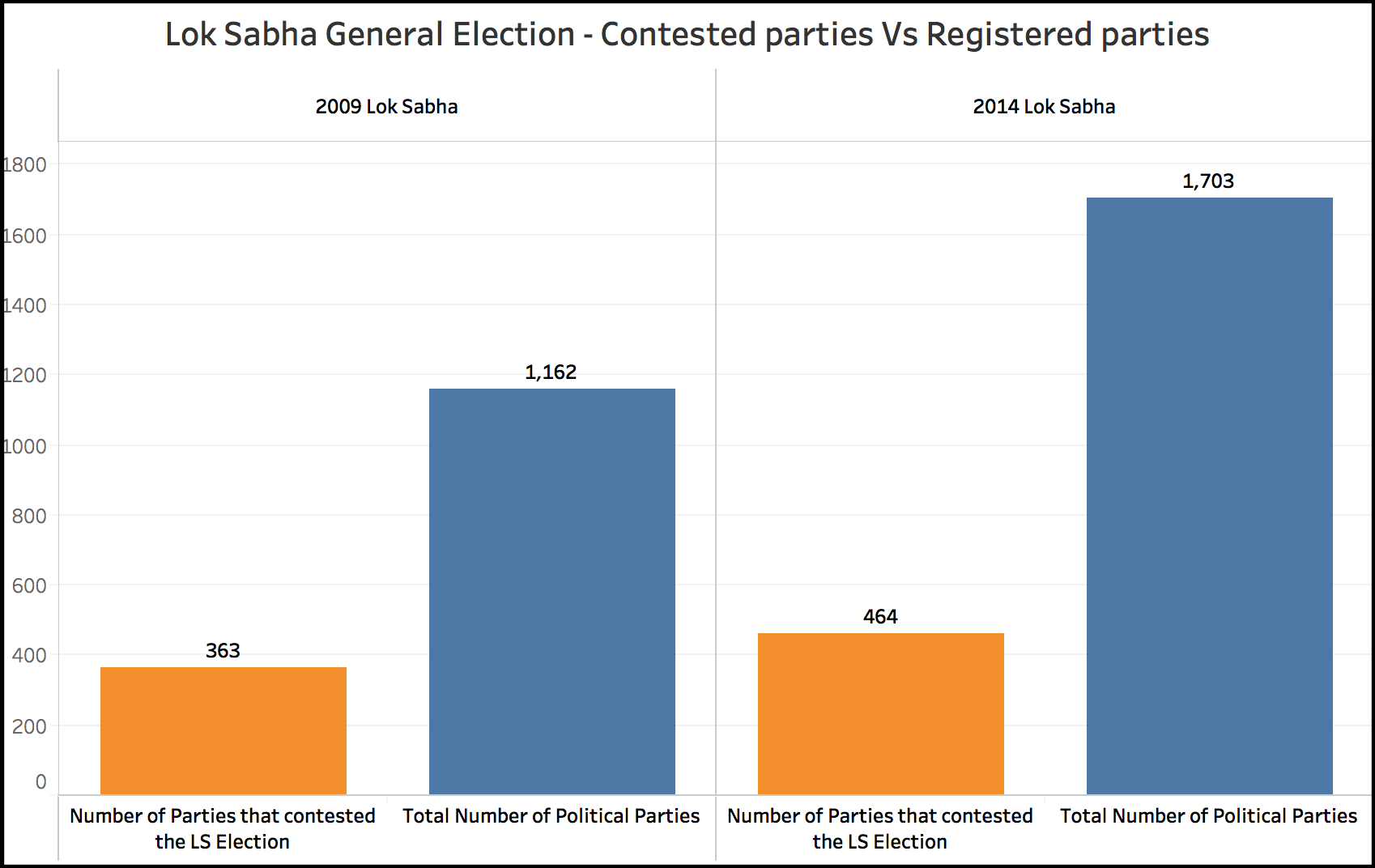Data from the ECI indicates that the registration of political parties increases disproportionately during election years. The total number of political parties has increased twofold between 2010 & 2018, and has now crossed the 2000 mark.
[orc]
While India is being touted as one of the fastest growing economies in the world, there is something else that is keeping pace with the Indian Economy; at least in the last 10 years. Number of Political Parties in India has been growing at a rapid pace without any sign of a slowdown. Between 2010 & 2018, the total number of political parties in India has increased twofold and has now crossed the 2000 mark as per the Election Commission of India’s (ECI) latest data.
Political Party Registration
Section 29A of the Representation of People’s Act, 1951 defines the process for the registration of a political party. Any association or body of individual citizens of India can register as a political party with the Election Commission of India (ECI) by following the guidelines laid down for this purpose.
The benefits of registering a political party are many. The candidates set up by a political party, registered with the ECI will get preference in the matter of allotment of free symbols compared to purely independent candidates. Further, registered political parties, in course of time, can get recognition as `State Party’ or National Party’ provided they fulfill the required conditions.
When does a Registered Party become a Recognized Party?
A registered political party is accorded the status of a recognized state or national party as per the criteria listed in ‘The Election Symbols (Reservation and Allotment) Order, 1968’. This order was amended from time to time.
For any political party to be eligible for recognition as a State Party in a particular state, it has to satisfy any of the five conditions listed below.
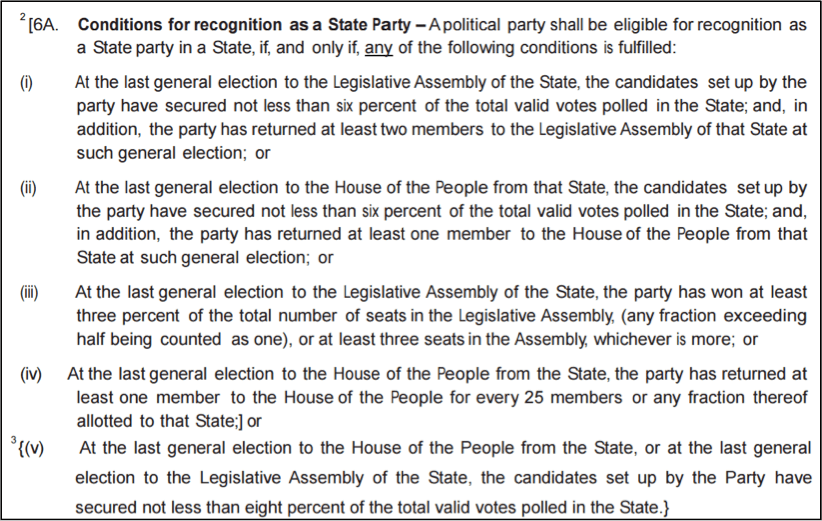
In brief, the five conditions are:
| Conditions for Recognition as a State Party | |
|---|---|
| 1 | Secure at least 6% of the valid vote & win at least 2 seats in an Assembly General Election |
| 2 | Secure at least 6% of the valid vote & win at least 1 seats in a Lok Sabha General Election |
| 3 | Win at least 3% of the seats or at least 3 seats , whichever is more, in an Assembly General Election |
| 4 | Win at least 1 out of every 25 seats from a state in a Lok Sabha General Election |
| 5 | Secure at least 8% of the total valid vote in an Assembly or a Lok Sabha General Election |
Recognition as a National Party
For any political party to be eligible for recognition as a National Party, it has to satisfy any of the three conditions listed below.
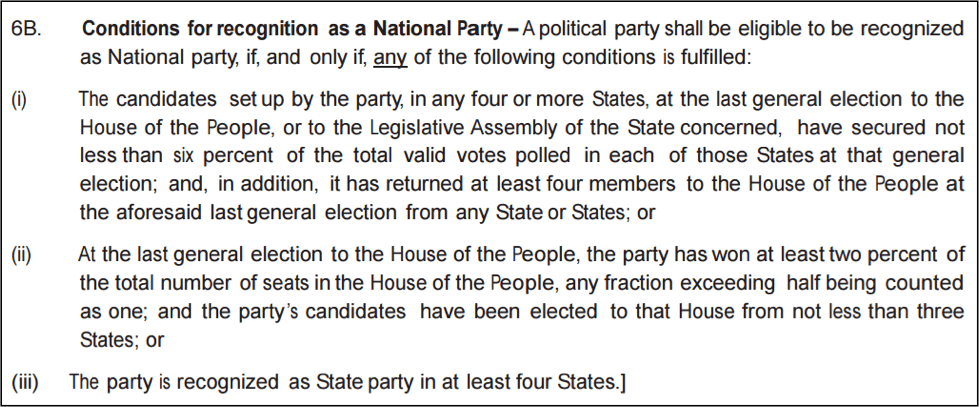
In brief, the three conditions are:
| Conditions for Recognition as a National Party | |
|---|---|
| 1 | Secure at least 6% of the valid vote in an Assembly or a Lok Sabha General Election in any four or more states and won at least 4 seats in a Lok Sabha General Election from any State or States |
| 2 | Win at least 2% of the total Lok Sabha seats in a Lok Sabha General Election and these seats have to be won from at least 3 states |
| 3 | The party is recognized as a State Party in at least four states |
Trinamool Congress is the last such party to have been recognized as a National Party as it has satisfied the eligibility criteria for a State Party in the four states of West Bengal, Tripura, Manipur & Arunachal Pradesh.
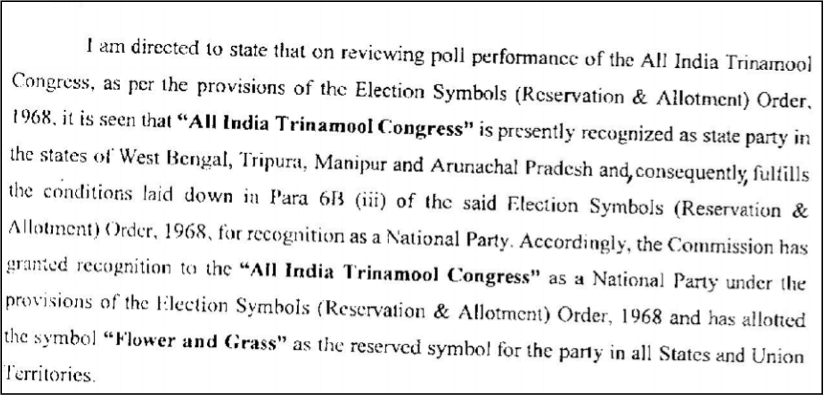
Though some of the other six national parties did not perform as well in the recently held elections, their national party status is intact following an amendment made to the allotment rules recently. Their status will now be reviewed only after the next general election.
Advantages of being recognized as a State or National Party
The biggest advantage of being recognized is getting the reserved symbol. A party recognized as a state party gets a reserved symbol within the state. All the candidates contesting from that party will get the same symbol throughout the state. For National Parties, the reserved symbol can be used across the country by its contesting candidates. This is one the biggest advantages since symbol plays a very important role in elections.
There are also other advantages for the recognized parties like subsidized land for party offices, free air time on Doordarshan & All India Radio, supply of electoral roll copies free of cost during elections etc.
What about the number of Recognized Political parties?
As per the symbol orders issued by the ECI in respective years, the number of recognized parties has remained more or less the same since 2010. The number of recognized national parties is now seven (7) after the inclusion of Trinamool Congress in late 2016. The number of recognized state parties is 59 as per the the latest order of the ECI. This number has not changed substantially over the last nine years. The states of Telangana, Kerala, Jharkhand, Puducherry & Bihar each have four recognized state parties. Some of these parties are recognized as state parties in more than one state.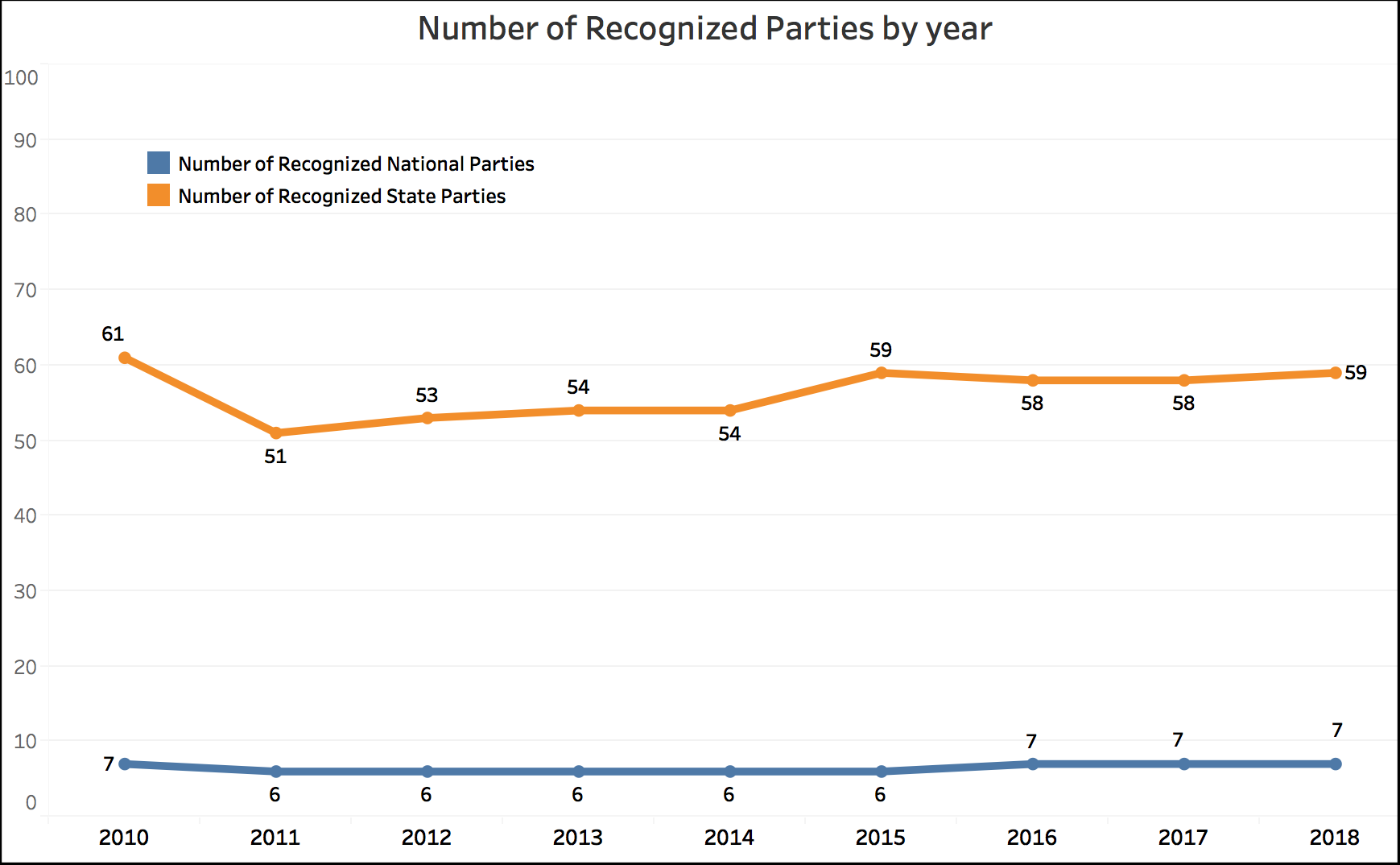
What about the number of Registered Unrecognized Political parties?
Unlike the number of recognized parties, the number of registered unrecognized political parties has increased two fold between 2010 and 2018. From 1094 in 2010, the number has reached 2095 as per the latest order of the ECI. It is interesting to note that the number of such parties increases disproportionately during a major election year.The number increased by over 17% between 2013 & 2014. And now between 2017 & 2018, it has already increased by over 11%.
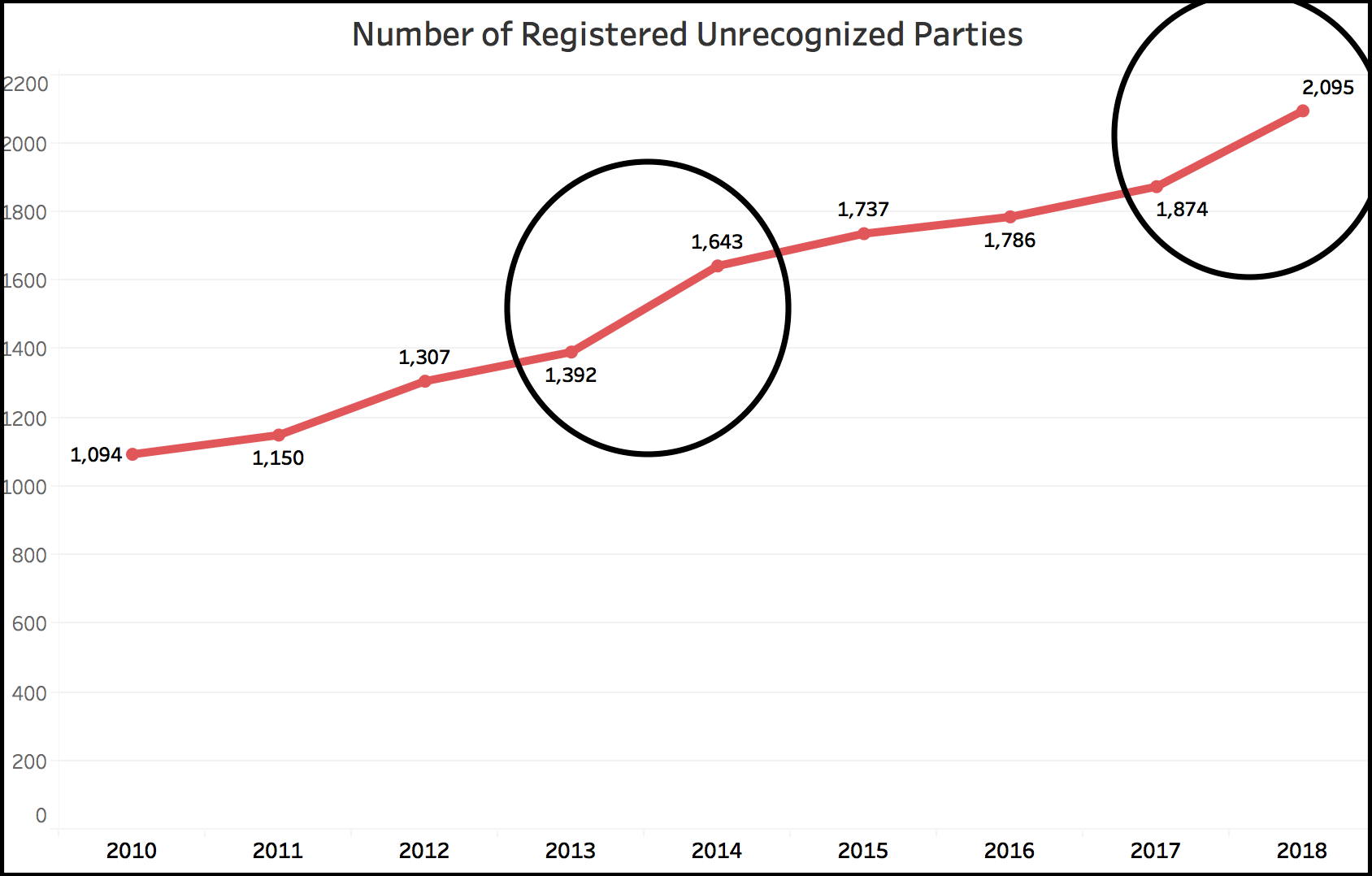 How many of them actually contest elections?
How many of them actually contest elections?
Data indicates that not even a third of these parties participated in the Lok Sabha Elections. While only 363 parties contested in 2009, 464 parties contested in 2014. This makes a paltry 31% in 2009 and a much lesser 27% in 2014. It looks like political parties are registered to take advantage of the tax benefits than to contest elections.
